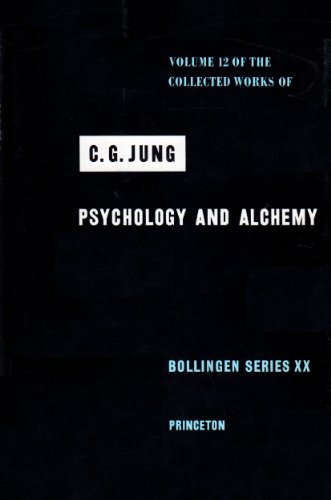Newly released
This book is new and will be uploaded as soon as it becomes available to us and if we secure the necessary publishing rights.

Psychology and Alchemy Book PDF
(0)
Author:
Carl G. JungNumber Of Reads:
72
Language:
English
Category:
Social sciencesSection:
Pages:
623
Quality:
excellent
Views:
899
Quate
Review
Save
Share
Book Description
Alchemy is central to Jung's hypothesis of the collective unconscious. In this volume he begins with an outline of the process and aims of psychotherapy, and then moves on to work out the analogies between alchemy, Christian dogma and symbolism and his own understanding of the analytic process.
Introducing the basic concepts of alchemy, Jung reminds us of the dual nature of alchemy, comprising both the chemical process and a parallel mystical component. He also discusses the seemingly deliberate mystification of the alchemists. Finally, in using the alchemical process as providing insights into individuation, Jung emphasises the importance of alchemy in relating to us the transcendent nature of the psyche.
Carl G. Jung
Carl Gustav Jung, is a Swiss psychologist and founder of analytical psychology. Young says his intellectual life began with a dream he had at the age of three. He received a scholarship at the University of Basel to study medicine and his father died at the age of 20. Jung loved university life and devoured philosophical works, especially the works of Kant and Nietzsche, in addition to medical books and references, and he studied spirituality and supernatural phenomena. Young became a member of the Society for Public Speaking and Debating called the Zuqengia Club. Young was able to reveal something that was admired and appreciated by all: the human spirit. His ideas advocated the existence of two directions of the soul. One towards life affairs and the other towards the realm of spirituality. There, some things happened to Young and Young thought he should attend the necromancy. For two years, Young had been attending these sessions, with his cousin Helen Preswork being her psychic, and her late father, Samuel Preswork, being her mentor. And he stopped going to those sessions when Helen started to get caught up in these invocations and Young didn't know Helen was in love with him and everything she did to get his attention. Thus, Young had two personalities. The first character was immersed in life matters, and her feelings could explode in any emotional situation. As for the second character, she believes in superstitions and the world of the paranormal, as Jung felt that he was connected to the other world. He searches for the nature of that strange thing that enters the body at birth and leaves at death, and this led him to realize that his desired goal is psychiatry, which, starting in 1890, he began studying as a science and a profession at the same time. Jung began training in psychiatry in 1900, when he became an assistant at the Bergolslie Mental Hospital, a clinic attached to the University of Zurich and was under the direction of Dr. Eugene Blölru. Young's research continued under the supervision of this doctor until Jung developed in this field.
Book Currently Unavailable
This book is currently unavailable for publication. We obtained it under a Creative Commons license, but the author or publisher has not granted permission to publish it.
Rate Now
5 Stars
4 Stars
3 Stars
2 Stars
1 Stars
Psychology and Alchemy Quotes
Top Rated
Latest
Quate
Be the first to leave a quote and earn 10 points
instead of 3
Comments
Be the first to leave a comment and earn 5 points
instead of 3